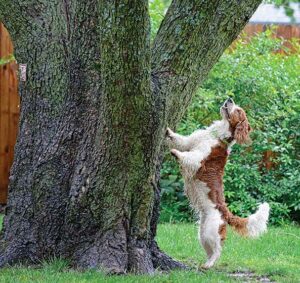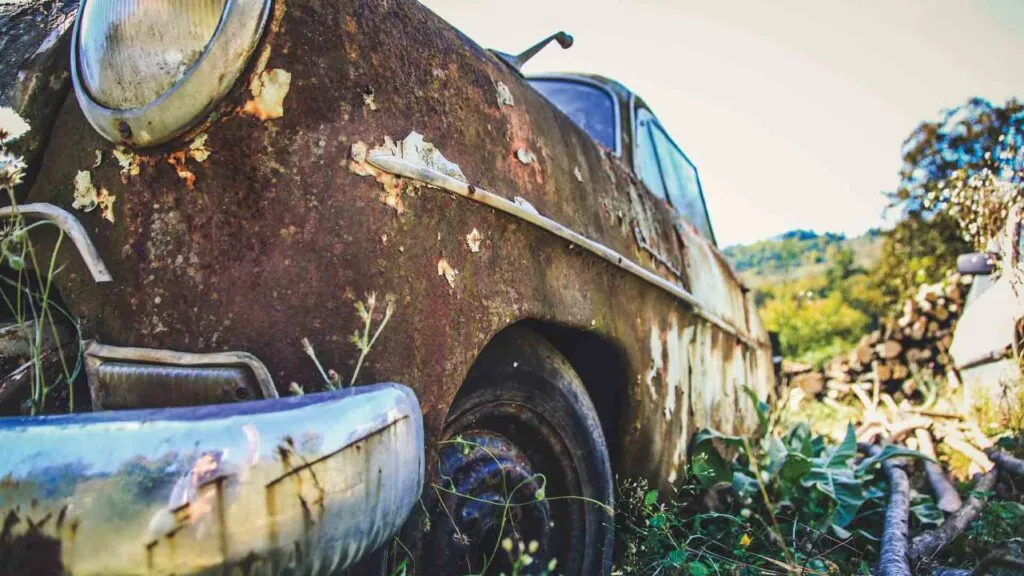When you travel out for your holidays this summer and are stuck in traffic with a carful of fidgety teenagers, or are snugly ensconced in your far-up-north cottage and it rains for two or three days, what will you do? Well, here’s a little quiz that will well suit that cozy day or evening when thunder claps, and a hot tea cup is cradled in your hands, and the men are pacing and fretting about the fish which are getting away.
This is a good time to reflect, with all those with you in your get-away, how some particular words and phrases found their way into the English language. Words or phrases are almost like people, evoking images and scenes as we come across them. You will find some below in a trivial pursuit setting – hopefully of historical interest – which might make that rainy day or evening lots of fun. Give everyone (although you can pair people up as well) a piece of paper and a pen. Have a moderator read the small paragraphs below, stopping at the underlined section so that each person can fill in the phrase or word which is indicated.

There used to be a racoon in this tree. See question 1.
The winner, the one who gets the most right answers, gets first dibs on the outhouse when it stops raining! And if you want to make this a shorter event, split it into two 15-question quizzes!
You can find all the answers on page at the bottom.
- A phrase meaning “to make a mistake” was coined in the time when colonial settlers in America began hunting raccoons. Often a raccoon, chased by dogs, would climb up a tree. The dog would stay under the tree until the hunters came to make the kill. There were times, however, when the raccoon would be able to jump into the next tree and thus make his escape. The dog would be left .
- Race horses are high-strung. Trainers discovered long ago that a goat is a soothing companion for a race horse. After a horse becomes fond of a certain goat, he may become upset if it is taken away from his stall. Race-track gamblers sometimes stole thoroughbred stall-mates just before a race. This reduced the horse’s chance of winning. From this dishonest method a phrase has come which means upsetting a person, or making him lose his temper. It is to .
- American railroad tycoons were among the first to have plush offices with huge desks and rich carpets. Their employees, on the other hand, worked in bare surroundings. The only time a worker was called into the plush office was if he had made a mistake. Hence a term meaning to deliver a stern lecture became known as being .
- This phrase refers to some money laid by. The allusion is to the custom of placing an egg in a hen’s nest to induce her to lay her eggs there. If a person has saved a little extra, it is often referred to as a .
- There are some things that cause a sensation for a number of days, and then these things pass into limbo, into things forgotten. Cats and dogs have their eyes shut for about 9 days after they are born. It is an amazing thing that they can see after this. As much as to say, the eyes of the public can be blind in astonishment for a number of days, then they see. From this comes the saying .
- Early after the Civil War there were many groups of migrant laborers. They had no homes and followed crops to find work. Most of their work involved hand labor with a hoe and so they became known as hoe boys. Often these migrant workers committed petty theft at the farms at which they worked. By 1891 these “kings” of the road, who seemed to dislike work, were known as .
- The early wooden ships had no stoves, so bread from shore had to be taken along. This bread quickly became moldy. A baker discovered that by reheating thin cakes of unleavened bread he could take out the moisture and keep it for long voyages. Such bread was called “bis coctus,” from the Latin for “twice-cooked.” This is where we get the English word .
- The Romans served out rations of salt and other necessities to soldiers and civil servants. These rations were called by the general name of salt (sal), and when money was substituted for these rations, the stipend went by the name of .
- The Venerable Bede (672-735), in his Ecclesiastical History, tells the story of a young priest who was to set out by land, but return by water, to accompany a young maiden destined to be the bride of King Oswin of Northumbria. The priest was given a vial of oil to pour on the sea if it became stormy. A storm did arise and the priest poured oil on the waves and they became calm. From this story came a figure of speech meaning to soothe an anxious spirit. It is .
-

Would this be more or less cut if it were a pig rather than a cat? See question 19.
The use of iron bars in jails did not become common until the 1600s. The French expressed this way of being jailed as “embarrer.” The English abbreviated it to “embar.” Reforms reduced the number of crimes punishable by death and prisons began to take on a larger role. Although people would rather be locked up than killed, they were ashamed to be “embarred.” From this comes the English word for shame which is .
- In medieval times one of the most common crimes was stealing and butchering another man’s animals. But possession of fresh meat did not always mean you had stolen. Only when a man was caught with the animal, with blood on his hands, could he be convicted. So a phrase meaning a person being surprised in a wrong act was coined – that phrase is .
- At the beginning of the machine age it was customary for work people to have their own tools. These they carried in a bag and left on the job site for the sake of convenience. When employers fired a man they gave that man no notice. But at quitting time they would give him his pay along with his bag of tools. From this practice we get the expression which means losing one’s job or .
- Before electricity gamblers would play their dice games by the light of a candle. As the candle interfered with the throw of the dice, the loser was generally ordered to hold the candle up. The other players made fun of him as he stood there and they would comment that he was not even capable of that one small task. By 1550 a phrase which meant complete inferiority was born – it is .
- Don’t think you are safe until you are quite clear of threatened danger. When bandits were masters of the forests, no traveler was safe until he had got clear of their hunting ground. This led to an admonition to be on the alert, to not be overly confident danger had passed. The warning was: .
- In 1257 a gold cent was coined by Henry III of England. After he lost the crown, his successors stopped minting it. For several centuries after this, tradesmen occasionally saw these coins and prized them as good luck. They were shiny and nice looking. Even today when a person wishes to describe a valuable article he can speak of it as worth a .
- In the reign of Louis XIV, when wigs of unwieldy size were worn, and bows were made with very great formality, two things were specially required in court dance etiquette: a “step” with the feet (“pieds” in French), and a low bow with the body. In the bow, the wig (“queue”) would be very apt to get disarranged, even fall off. The caution, therefore, of a French dancing master to his pupils was: .
- Doorbells are a fairly recent invention. People used to have knockers on a small metal plate nailed to the door. The nails holding the knocker took a great deal of punishment. As a matter of fact, the life was soon pounded out of such nails. By 1350 a phrase meaning absolute lifelessness was born. It was .
- In medieval England noblemen liked to hunt boar. They drafted young men to beat for them – that is to say, young men had to work their way through underbrush and flush out the boar. Boar were dangerous. With one sweep of their razor-sharp tusks they could sever a man’s body. Consequently, unarmed beaters frequently disobeyed orders and did not walk directly through thick brush. By the 16th century, evasion in general had come to be known as .
- A common trick in medieval days was to substitute a cat for a sucking-pig in a bag and sell it to unsuspecting customers, who thought they were buying a good piece of meat. If anyone heedlessly bought a bag without examining the contents, he bought a “cat” instead of a “pig.” But if the buyer opened the sack and looked, the trick was exposed. He had .
-

A different sort of answer for question 21.
Professional horsemen of the 19th century developed many practices for training racers. Among them was the use of a heavy blanket designed to induce free perspiration. A name was developed for this garment. It was called a .
- Meat used to be eaten at every meal and it was roasted over an open fire. The job of turning the spit was long and tedious. A craftsman devised an open wheel cage by means of which a dog could be trained to walk to keep the roast turning. If the dog became tired, a live coal was placed in the cage to make him walk more rapidly. Hence andirons used to be called . (This practice was abolished by law in the 1800s.)
- A type of three-colored violet had a thoughtful expression on its face. Because of this French botanists called it “pensee” (thoughtful). Eventually, the French name was adapted to the English and the flower became .
- In the middle of the 19th century someone invented a gadget designed to make an audience laugh. Made of two thin boards, it was hinged at one end and loose at the other. Comedians would paddle one another with it and it would produce a loud noise. A term associated with all broad comedy thus came into being – this term was .
- Nellie Melba, the Australian prima donna, visited London. She was on a diet and ate very little. By mistake the cook put a very dry piece of toast on her plate. She loved it, crunched on it, and complimented the chef. Since that time, a particular dried bread has been called .
- In a church there is no cupboard or pantry, where mice do congregate. Hence the expression .
- Before the Industrial Revolution, hats for men were largely made of animal skins. Mercury was used by tanners. Hat-makers, who handled the fur many hours each day over the years, absorbed the mercury. They often began to suffer from the shakes when they were middle-aged and from mental disturbances when they were older. This frequently culminated into insanity. Hence mentally unbalanced people are sometimes described as .
- In his middle age, Louis XIV began wearing long wigs. His nobles followed suit. England adopted the custom as well. Custom dictated, however, that nobles could wear the long wigs and the ordinary person could only wear short ones. Consequently, men of prominence are said to be .
- In almanacs, saints’ days and holidays are printed in red ink. Other days are printed in black ink. So a day to be recalled with delight came to be known as .
- Easily seen in a person’s throat, a little projection moves up and down. Folks explained it by saying a piece of fruit had stuck in Eve’s husband’s throat when he partook of it. The name stuck. The projection caused by thyroid cartilage is therefore known as the .
- When heavy penalties were given for short weight, bakers used to give a surplus number of loaves, called the inbread, to ensure they wouldn’t be at any risk of those fines. The thirteenth was the vantage loaf and this amount came to be known as a .
Answers
- barking up the wrong tree
- get one’s goat
- called on the carpet
- nest egg
- a nine days’ wonder
- hobos
- biscuit
- salarium or salary
- pouring oil on troubled waters
- embarrassment
- caught red-handed
- getting the sack
- not able to hold a candle (to)
- You are not out of the woods yet
- pretty penny
- Mind your P’s (that is pieds, feet) and Q’s (that is queues, wigs)
- dead as a doornail
- beating around the bush
- let the cat out of the bag
- sweater
- firedogs
- pansy
- slapstick
- Melba toast
- poor as a church mouse
- mad as a hatter
- bigwigs
- a red-letter day
- Adam’s apple
- baker’s dozen











